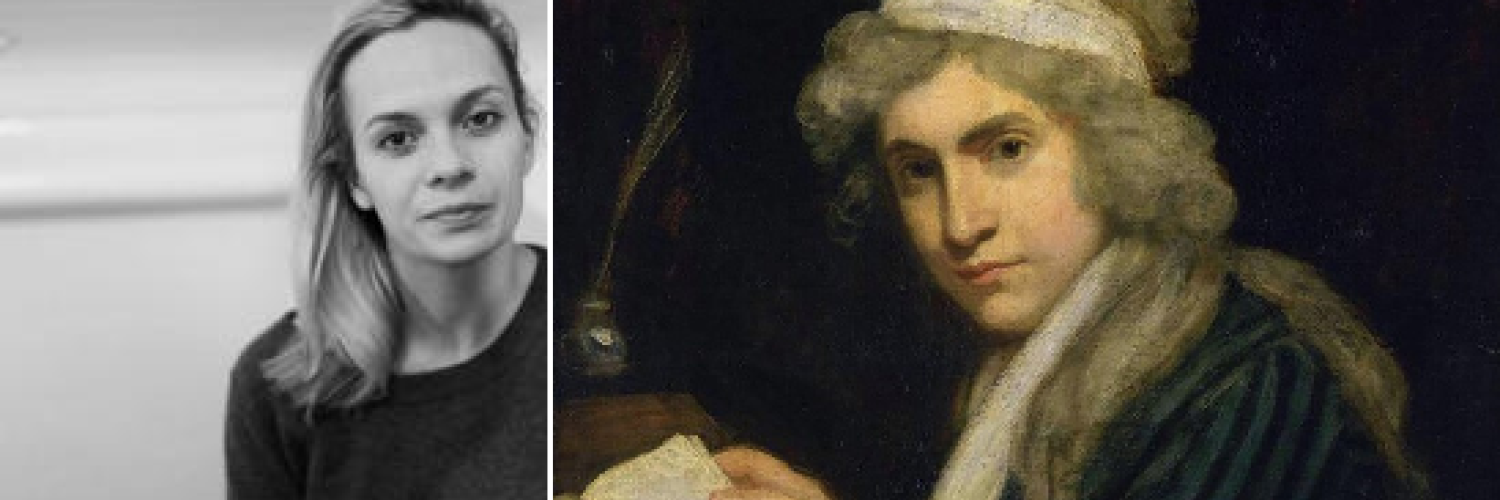Women in philosophy: an interview with Associate Professor Sophie Smith

Associate Professor Sophie Smith has published the essay 'A Comet that Bodes Mischief' with the prestigious London Review of Books. To mark this publication, Sophie discusses how difficult it still is for women to be taken seriously as intellectuals, as well as her view that for some, success and recognition still depend on being 'the right kind of woman'.
1. The essay discusses how women gained access to education through 'filial personas' and relationships with male mentors. How does this relate to challenges that women in philosophy face today—are there similar dynamics we should address?
If we look at the women in early modern Europe who came to write philosophy – or, indeed, who came to contribute to scholarship more broadly conceived – most of them have in their background a man who decided to give them access to an education, and to scholarly networks, they would otherwise have been denied. In some cases, these men were related to the women in question, but in other cases – cases where women who wished to pursue learning but didn’t have, say, an enlightened father – they had to find ways to convince other men to help them, or at least to engage them – to take them seriously as intellectual interlocutors.
The notion of a filial persona' is used by the historian Sarah Gwyneth Ross to name a set of behaviours, practices and rhetorical devices early modern women developed to attract the attention, and the patronage, of male scholars. They cultivated the persona of a 'daughter' in the hopes that their chosen 'father' might lend them support. This often meant extreme acts of deference, and a lot of ego-management. This was both a function and an acknowledgement of the fact that men had almost all of the gatekeeping power.
I don’t know enough to be able to say what personae women nowadays have to adopt with their male mentors, if any. But it’s clearly still the case that in several academic disciplines, including philosophy, women have to navigate workplaces, networks and institutional hierarchies dominated by men. I have seen for myself the ways that navigating those hierarchies successfully can require being the ‘right kind of woman’ by the lights of the men in question. What this means is of course context-dependent, but it is going to be easier for some women to achieve than others. A range of things, from class and race to personality or political views, can render you the wrong kind of woman.
2. At the end of the essay, you ask, 'What happens when we afford these women the attention and generosity men have always received?' To what extent do you feel that the future envisioned by the likes of Mary Astell has, or will, come into being as a result of their renewed influence?
Even if I share Astell’s frequent desire to be left alone to read and write, I don’t hope that her vision for social and political organisation is brought into being! Astell was a fascinating and inventive advocate for some women’s access to education; she was also a High Church Anglican, a Tory pamphleteer and, among other things, an opponent of contemporary calls for religious toleration. I nonetheless hope that her ideas and her arguments – and those of many other historical women thinkers, including women who have had nothing like the level of attention of a Mary Astell or a Mary Wollstonecraft – are more widely read, and taught to students.
Behind my call for generosity and careful attention is my own experience of teaching and writing about many of the so-called 'great men' of the Western canon – Plato, Aristotle, Aquinas, Machiavelli, Hobbes, Locke, Rousseau. We are in general, and I don’t think wrongly, very generous to these men when we read them: we take them very seriously, we assume they were smart and still worth reading and that, even if it is not immediately obvious to us, there is a logic to their arguments. When we discover argumentative problems, as we usually do, we think about whether there is a still a way of achieving the conclusions they sought that is consistent with their other views. Sometimes I think we are too generous, so much so that we can be less good at saying: this is what he was trying to achieve, but he failed. Once you see quite how much failure there is among the ‘great men’, even the most inventive, imaginative, insightful of them, it is hard not to start asking questions about how adjectives like 'great' are distributed.
By contrast, I think that when it comes to women thinkers – and this is exaggerated when it comes to those who self-identify as feminist or radical thinkers -- we are often not nearly generous enough. There is, if you like, an asymmetry in the distribution of charity. Women are dismissed as comparatively unserious before they even get on the syllabus. This is even more pronounced for women thinkers of colour. And yet when you read many such thinkers with the same kind of eye with which I was taught to read the men, you see not only their argumentative power but their formal inventiveness, their political insight, their conceptual imagination.
I hope, then, that it becomes obvious to everyone that there is simply no need for women authors to be as poorly represented as they often are on syllabuses, including our own syllabuses here in Oxford. If you are teaching the history of ideas about state power and punishment, about legitimacy and political obligation, coalition and compromise, about freedom, domination, equality, or justice, there are always women thinkers – historical and contemporary – to include.
3. How can we ensure that past work by women is not continually rediscovered, but truly integrated into the history of philosophy?
By teaching them, citing them, publishing on them. We also need to be careful in our own research on women thinkers to acknowledge the prior work that has already been done on the women we are writing about. Some thinkers really have been 'neglected'. But in other cases, the language of 'neglect' is used far too freely to motivate projects on women about whom other scholars and authors have written before. We might disagree with those readers, we might think they got all sorts of things wrong, but we should not pretend that they did not exist. When scholars do not properly and thoughtfully engage previous work, they help to perpetuate a cycle of lost and found.
4. How does studying the ideas of early modern women philosophers help us understand the intersections between gender and other forms of oppression?
I do not think early modern women’s philosophy is the best place to start if our aim is to understand the intersection of gender with other axes of oppression as it manifests in contemporary Europe or anywhere else. In the main, the case for returning to early modern women philosophers is that we wish to better understand the history of early modern philosophy in all its richness – a history of which these women were a part, and sometimes a crucial part. Much of the best work on early modern women thinkers acknowledges exactly this – it places them in an intellectual context alongside the male philosophers with and against whom they were writing, and focuses on the questions they posed as their questions. Many of these women thinkers had things to say about gender, certainly, but often it was not their primary preoccupation at all: they were asking questions about theology, about natural philosophy, questions that we would now study under metaphysics and epistemology.
If your aim is to understand the intersection of gender and other forms of oppression and you are an Oxford student in Politics or Philosophy then, among other things, I recommend taking the Feminist Theory undergraduate paper!
5. What advice would you give to young women navigating the field of philosophy today?
Advice is something that needs to be tailored to an individual’s circumstances, so I tend to recoil from giving it generically. But I don’t think it would do any harm to a young woman entering philosophy to be armed with some facts about her discipline – about its continued gender and racial disparities, about how those disparities are sometimes worse in philosophy than they are for STEM subjects, about the historical role philosophers have played in building and perpetuating various ideologies of inferiority. These facts can help to make sense of situations in which she might find herself: perhaps classroom situations where she is being talked over, or dismissed; situations where her male peers are automatically assumed to be 'brilliant' and she is called 'a hard worker'; or simply why it is that she is often one of very few women, or indeed the only woman, in the room. It is not because philosophy is not 'for her' but because, for centuries, men have worked very hard to exclude women from philosophy, and we still in many ways live in the world those men created.






